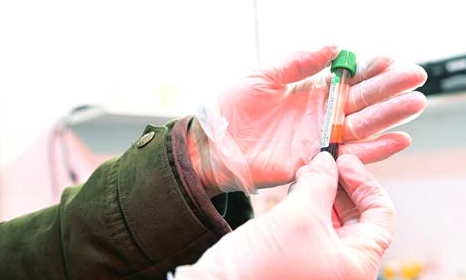Veterinary
IHRB Veterinary Officers are responsible for regulatory clinical examination of horses, equine anti-doping procedures and the provision of advice on veterinary matters to the Raceday Stewards on the racecourse.
Find Out More
Learn more about our veterinary

Medicines Register
Authorised Officers
The IHRB have a Memorandum of Understanding (MoU) with the Department of Agriculture, Food and the Marine (DAFM) through which the Minister of Agriculture, Food and the Marine appoints IHRB officials as authorised officers under the Veterinary Medicinal Products, Medicated Feed and Fertilisers Regulations Act 2023. This MoU, signed in 2020, places responsibility on the IHRB to ensure that any staff acting as authorised officers are suitably trained in order to fulfil their responsibilities under the legislation. Our team of authorised officers come predominantly from a background of equine expertise but also have experience and expert knowledge of investigations, working with authorised officers from other agencies including the Department of Agriculture, Food and the Marine Investigations Division, the Food Safety Authority of Ireland, Greyhound Racing Ireland, the Veterinary Council of Ireland. Working as authorised officers enables our team to access any Thoroughbred in the Republic of Ireland at any time in any location. This allows follow up of Thoroughbreds at any stage of their life in the ‘racing pool’ through inspections of licensed and unlicensed premises, such as those run by pre-trainers, point-to-point handlers, breeze-up consignors, store horse consignors and yearling consignors. It is a means of accessing Thoroughbreds for any matter around the use or misuse of medicinal products.
Some of the IHRB Veterinary Officers are also authorised under a Memorandum of Understanding (MoU) with the Department of Agriculture, Food and the Marine (DAFM) through which the Minister of Agriculture, Food and the Marine appoints them as authorised officers under the Animal Health and Welfare Act 2013. This enables the team to follow up potential welfare concerns with well defined courses of action including but not limited to the issuance of Improvement Notices, requiring specific actions to be undertaken by the person responsible for the horse(s).
-
Veterinary certificates relating to non runners as a result of being in season, illness, stress or injury must be sent to [email protected]. In accordance with Rule 194, when a horse is withdrawn due to the reasons outlined above, no fine will be imposed provided a veterinary certificate is lodged within three business days of the race to the office of the IHRB. Failure to lodge a certificate within three such days will render the Trainer liable to a fine of €200.
-
Veterinary certificates relating to non runners must be sent to [email protected].
If a certificate is related to STR or HIA an email will be issued outlining the contact details of where the information must be returned to. -
Please contact Weatherbys on 045 879979 for assistance in using the App.
-
Please provide the passport and vaccination details of the companion Horse you are requesting to bring to the races to [email protected] at the time of Declaration and notify the racecourse management to check on the availabity of stables.
-
It is a requirement under Rule 83 to notify the IHRB when a mare is in foal. Please email [email protected] to notify the Veterinary Department.
-
Any non-thoroughbreds entering the racecourse must be vaccinated in compliance with Rule 91. A copy of the vaccination details and Microchip number for ID purposes will be checked and cleared by a member of the IHRB Veterinary Department.
-
A pregnant mare is permitted to run up to 120 days from the day of covering.
-
It is a requirement that all Horses are vaccinated when entering a Racecourse. When a Horse is entered into a race on RÁS, the vaccination will appear green if vaccination details are in order and red if the vaccination has expired.
-
To amend incorrect details on the Weatherbys App email [email protected] with details of the vaccination given and a photo of the passport including the correct vaccination details and the horses passport number.
.png?width=64&height=64&mediaprotectionhash=41a88b49ebcaed742a4485f9adbf5755672c7ed2129b97626896534ecd0df266&ext=.png)

